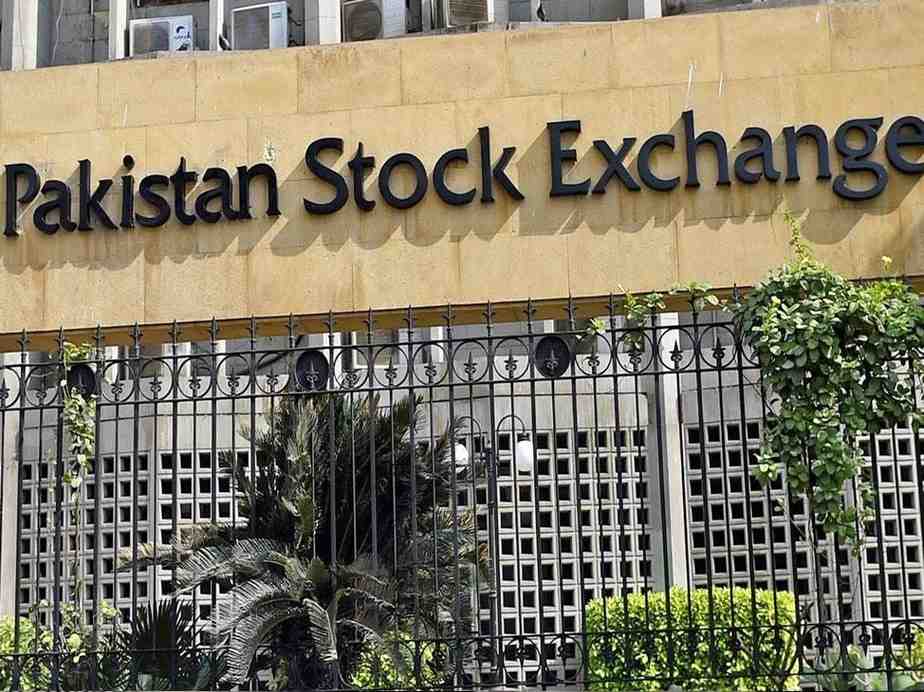On Wednesday military tensions between India and Pakistan knocked over investor sentiment at the Pakistan Stock Exchange as markets suffered major losses. Early trading on the KSE-100 benchmark index caused a 6,272-point decline that lowered market valuations to 107,296.64 from their previous close of 113,568.51 resulting in a nearly 6% loss and creating massive market-wide anxiety.
Market declines hit Pakistan’s stock exchange after India launched “Operation Sindoor” against terrorist bases in Pakistan and its occupied Kashmir territories during nighttime. Indian defense officials indicated the strikes hit three terrorist organizations including aish-e-Mohammed (JeM), Lashkar-e-Taiba (LeT), and Hizbul Mujahideen (HM) at 1:44 AM for their role in the April 22 Pahalgam Jammu & Kashmir terror attack.
The Indian government declared that their military operation carried out targeted strikes rather than seeking further escalation. New reports indicated Pakistan initiated heavy shellfire against positions on the Line of Control (LoC) leading to increased fears of an indefinite military confrontation. The nationwide civil defence exercises across 240 districts in India simultaneously increased national nervousness alongside the military tensions in the region.
KSE-100 Dips 4% Amid Indo-Pak Tensions
This geopolitical backdrop has driven the KSE-100 index down by approximately 3.7% to 4% since the Pahalgam incident, reflecting deepening investor unease. From April 23 to May 5 alone, the index shed 3.7%, and Wednesday’s fall further deepened those losses. As the session progressed, the market showed no signs of recovery, with declines still hovering above 4%.
In contrast, Indian equity markets remained largely resilient despite initial jitters. The BSE Sensex opened with a steep fall of 692 points to 79,948.80 but rebounded quickly, climbing over 200 points to touch 80,845. By 10 AM, it had pared most losses, standing just 32 points down at 80,609. Meanwhile, the Nifty 50 edged lower by 19 points to 24,361.
Analysts attribute this stability to India’s strong economic fundamentals and consistent foreign investor confidence. Foreign institutional investors (FIIs) have injected nearly Rs 43,940 crore into Indian stocks over the past 14 trading sessions. Much of this capital has been directed toward large-cap equities, with investors favoring India amid slowing growth in both the US and China.
Nifty Faces Resistance as Volatility Persists Amid Global, Geopolitical Risks
Despite the market’s rebound, volatility remains. Analysts caution that further geopolitical developments or global economic shifts such as the US Federal Reserve’s upcoming decision could trigger renewed market swings. Prashanth Tapse of Mehta Equities warned that Nifty may see selling pressure near the 24,500–24,550 range unless clarity improves.
Market history supports the idea of Indian equities recovering strongly from such shocks. “Post-Kargil, the Sensex rose 63% in a year; after the Parliament attack, it gained over 20%. Following the Mumbai attacks and Balakot airstrikes, it surged 60% and 15% respectively within a year,” said Pankaj Singh, founder of SmartWealth.ai. He urged investors to focus on fundamentals, not fear.
Meanwhile, the mood in Pakistan’s financial circles remains grim. The KSE-100’s dramatic slump underscores broader fears about economic fallout from the military confrontation. Traders reported widespread panic selling and a lack of buyer confidence, with concerns growing over further retaliatory actions or diplomatic breakdowns.


